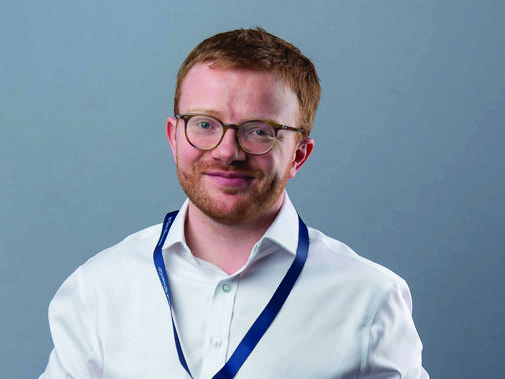What did you first think when you heard about COVID?
When the ‘Coronavirus’ first emerged in the news in early 2020, I thought of it in a similar way as I had thought about Ebola epidemic in the previous years. I was concerned for the people it was affecting globally, and had some concerns it might spread, but never really imagined it would have such a direct impact here in Northern Ireland on my own life, and the lives of my family, friends, colleagues and patients.
How has your life changed – personally and professionally?
In March 2020, fairly abruptly a decision was taken that I would need to go home from work in General Practice due to the risk related to pre-existing medical problems. Subsequently ‘Shielding’ was introduced, and for the next few months I worked remotely from the practice. In reality, given the move to remote consulting, I was quite fortunate to be able to continue working and supporting the practice team. Many shielding trainee colleagues have not been as fortunate, as they are in specialties which don’t lend themselves to remote working. Feeling the need to do something to support local GP trainee colleagues with the uncertainty surrounding their training including examinations, I worked with the Deanery – Northern Ireland medical and dental training agency (NIMDTA) GP Speciality Training – to create a weekly update for my peers. The update aimed to provide the most accurate available current information, to try and alleviate some of the uncertainty of the pandemic and provide colleagues with answers to the most commonly presenting concerns. This collaborative project had good feedback and demonstrated the power of good communication and collaboration. As well as my clinical work, my research projects have also been affected. As a research community we have all had to rapidly adapt and much of our work has been focused on COVID-19. In August 2020, it became clear Northern Ireland would play its part in helping to deliver UK COVID-19 Vaccine Phase 3 Trials. I was fortunate to be provided with a Clinical Research Fellowship to support this work. We rapidly assembled a large multidisciplinary team from Health and Social Care and Academia in NI. We recruited nearly 500 participants to the NOVAVAX trial in October and November 2020. I’m particularly proud of the role primary care has played in the trial including 25 local GPs coming forward as the Clinical Trial Doctors and Belfast COVID Centre has played a vital role. We were delighted to see the interim analysis results demonstrating high efficacy of the NOVAVAX vaccine, and hope it will soon join the other approved vaccines in the global deployment.
Did you learn anything about yourself this year?
In a previous BMA blog I described how fortunate I am to have such supportive colleagues. The pandemic has further demonstrated just how fortunate I am. My circumstances could have led to being benched for the duration of the pandemic. My clinical and academic supervisors, and NIMDTA GP specialty training, have been incredibly supportive and flexible and enabled me to continue training and then take time out of training help run the Vaccine Trial.
What do you think needs to happen now in healthcare here? Long term and short term?
I hope we don’t get too carried away with remote working. There is no doubt it has benefits for efficiency and access for certain patient groups who have smart phone access and conditions which can be managed remotely. However, in primary care we have relied heavily on the relationships we have built with our patients over decades, and I believe many conditions are much better managed in practice face-to-face. The mental health fallout of the pandemic is going to be huge. I’ve reflected on the effects of war on veterans and how the true mental health impact is only seen when they return home. I’m concerned colleagues from throughout health and social care will be left with deep scars from the personal and professional challenges they have faced. As a profession we are exhausted and haven’t really stopped since March 2020. We need to acknowledge that we all need support and time to heal and that when the worst of the pandemic is over, and everyone has time to reflect, that is when that support will be needed most.
What one thing (or bit of advice?) would you tell / give yourself back at the start of the pandemic?
Pace yourself – this is a marathon not a sprint. We all went out of the gate at full speed, and haven’t really stopped to take a breath since. The challenge with the pandemic is that it follows you home as it affects us all personally as well as professionally. Recognising the need to build in time away from clinical practice, research, news and social media etc is vital.

